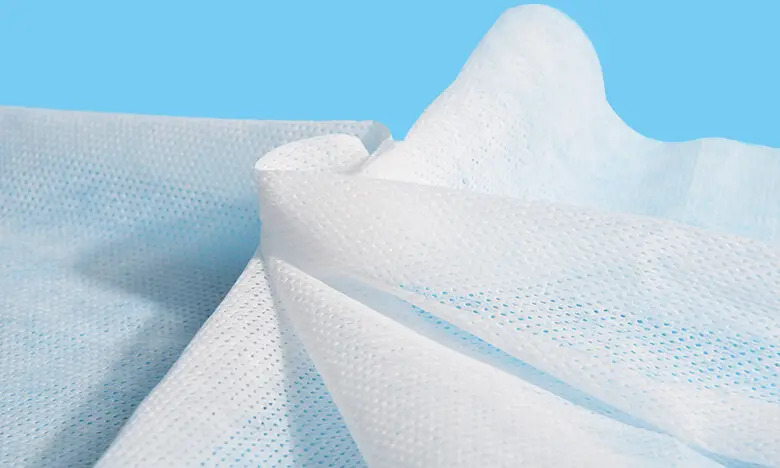Chemical fibers and plant fibers are used in the production of non-woven textiles, which may be manufactured on either wet or dry paper machines, with water or air serving as the suspending medium. Despite the fact that it is fabric rather than woven. It is a new generation of ecologically friendly materials, and the benefits it has include high strength, breathability, waterproofness, environmental protection, flexibility, non-toxic and tasteless properties, and an affordable price. Full of color, among other things. Let's take a look at the manufacturing process that goes into making non-woven textiles in this edition of the news.
1. The polyester and polypropylene fibers that make up the non-woven fabric are carded, combed, pre-needled, and main-needled before being woven together. Following the addition of a mesh interlayer in the center, the material is subjected to double-pass nucleation, air-laid acupuncture, and compounded into fabric. After going through the filtering process, the filter cloth takes on a three-dimensional structure and is heat-set.
2. The surface of the non-woven fabric is treated with chemical oil after the singeing process in order to make the filter cloth smooth and uniformly dispersed. The product seems to have a good density, to be smooth on both sides, and to have a decent air permeability from the surface. It has been shown via practical application that high-intensity pressure may be used, and that the filtering accuracy can be increased to 4 microns. The requirements of the customer will determine whether of two types of raw materials, polypropylene or polyester, will be supplied.
3. The performance of non-woven textiles in plate and frame filter presses has been shown to be superior via practical use. Treatment of coal preparation plant slime and treatment of wastewater generated by steel plants. Treatment of wastewater from a brewery and a dyeing business. If a different kind of filter cloth with different specifications is used, the filter cake will be pressed dry and will be difficult to remove. After using its filter cloth, the filter cake will be relatively dry when the filtration pressure reaches 10–12 kg, and when the filter is opened, the filter cake will immediately fall off on its own. When it comes to selecting non-woven filter cloths, users primarily focus on filter cloths of varying thicknesses and qualities according to air permeability, filtering accuracy, elongation, and other factors, and they have the opportunity to establish specifications and variants.

Polyester fiber and materials that are formed of polyester fiber are used in the production of non-woven textiles, which are also known as needle-punched cotton and other names. They are created by an acupuncture procedure and may have a variety of thicknesses, textures, and levels of hardness, among other characteristics.
It is resistant to water and moisture, breathable, flexible, thin, light, flame retardant, tasteless and non-toxic, inexpensive, and recyclable, to name a few of its other desirable qualities. It has applications in a variety of fields, including medical, medical equipment, masks, clothes, sound insulation, heat insulation, heating sheets, and filler materials, among other things.
The life lifetime of the non-woven fabric is just 90 days if it is degraded naturally outside, whereas the life span is within 8 years if it is decomposed inside. Burning it does not produce any hazardous or harmful byproducts, and it does not contaminate the environment, therefore this contributes to the conservation of the natural world.
The procedure for manufacturing non-woven textiles has been outlined above. Because there are no warp or weft threads in this product, it is extremely simple to cut and sew, in addition to being incredibly lightweight and simple to put together. It has a lot of popularity among those who like doing crafts. I have faith that the information presented here will assist you in gaining a deeper understanding of the product.
What Kinds of Things Can You Make Using Non-Woven Fabrics?
Fabrics made from non-woven materials are not only impervious to moisture but also breathable, flexible, thin, flame-resistant, tasteless, non-toxic, affordable, and recyclable. Can find applications in a variety of fields, including those dealing with sound insulation, heat insulation, heaters, masks, clothing, medicine, and filler materials, amongst others.
If you are interested in the non-woven machinery at all, then do not hesitate to get in touch with us so that we can provide you with a detailed machine catalogue and machine offer that will aid in your comprehension. There is also non woven fabric slitting machine at SUNTECH.
Since SUNTECH has more than 45 years of expertise in the textile machine production sector, fabric manufacturers are more than welcome to come to us with any queries they may have, and we will be very happy to give the most professional and appropriate answer for their needs.




